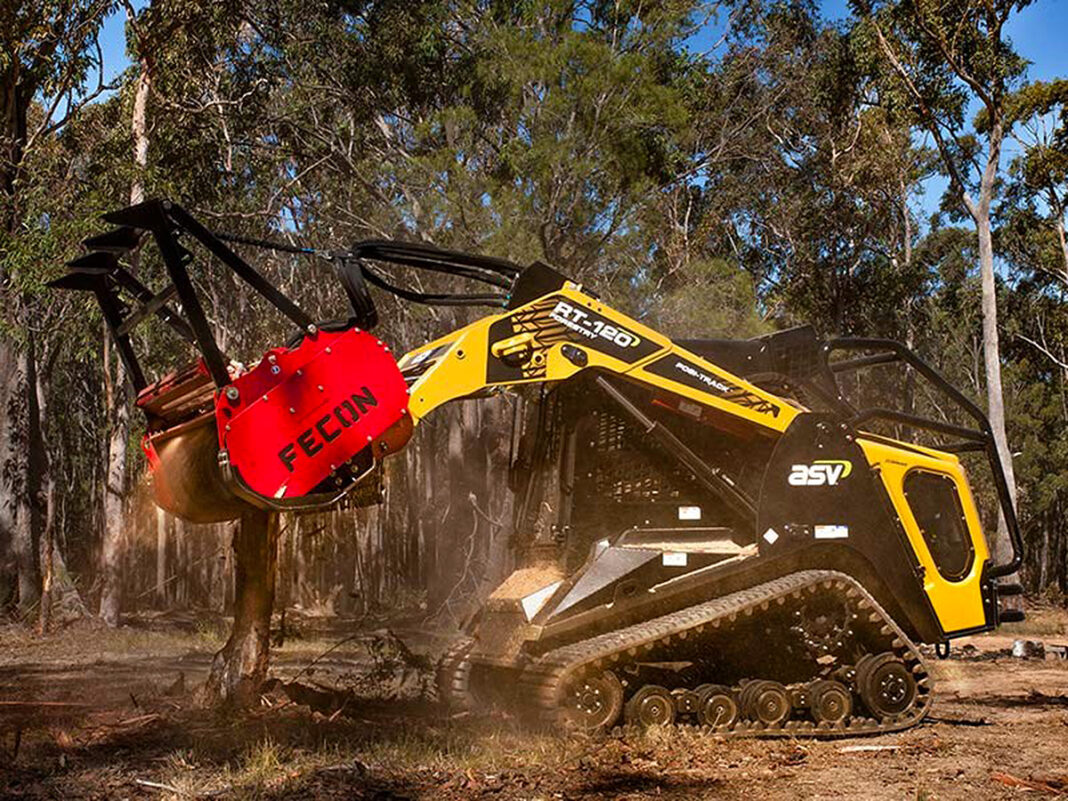Are you tired of struggling with overgrown vegetation on your agricultural land? Imagine effortlessly clearing brush, small trees, and undergrowth, transforming your property into a pristine landscape.
The solution lies in finding the perfect forestry mulcher for your unique needs.
But with so many options available, choosing the right forestry mulcher can feel overwhelming. What size do you need? Which features are essential? These questions might leave you feeling frustrated and unsure. Don’t worry – we’ve got you covered!
In this comprehensive guide, we’ll walk you through everything you need to know about selecting the ideal forestry mulcher for your agricultural operation.
From understanding the basics to evaluating productivity, we’ll explore key factors like assessing your needs, comparing different types, and making an informed decision. Get ready to revolutionize your land-clearing efforts and boost your farm’s efficiency.
What is a forestry mulcher?
A forestry mulcher is a powerful piece of equipment designed to clear land by grinding vegetation and small trees into mulch. This versatile machine can handle various types of vegetation, from brush and saplings to larger trees, effectively converting them into a layer of organic material on the ground.
Types of forestry mulchers available
There are several types of forestry mulchers available, each suited for different applications:
- Skid steer mulchers
- Excavator mulchers
- Tractor-mounted mulchers
- Purpose-built mulching tractors
- Front-end loader mulchers
| Type | Best for | Advantages |
|---|---|---|
| Skid steer mulchers | Small to medium projects | Versatility, maneuverability |
| Excavator mulchers | Rough terrain, steep slopes | Reach, stability |
| Tractor-mounted mulchers | Large agricultural areas | Cost-effective, familiar equipment |
| Purpose-built mulching tractors | Heavy-duty clearing | High power, efficiency |
| Front-end loader mulchers | Varied terrain, multiple tasks | Flexibility, multi-purpose use |
Benefits of using forestry mulchers in agriculture
Forestry mulchers offer numerous advantages for agricultural applications:
- Land clearing: Efficiently clear overgrown areas for crop cultivation or pasture
- Soil improvement: Create nutrient-rich mulch that enhances soil quality
- Erosion control: Mulch helps prevent soil erosion by providing ground cover
- Fire prevention: Reduce wildfire risk by removing excess vegetation
- Habitat management: Create and maintain wildlife habitats
- Time and cost savings: Accomplish land clearing tasks faster and more economically than traditional methods
By understanding the types and benefits of forestry mulchers, you can make an informed decision when selecting the right equipment for your agricultural needs. Now, let’s assess your specific requirements to determine which mulcher best suits your operation.
Choosing the Right Size
When selecting a forestry mulcher, choosing the right size is crucial for optimal performance and efficiency. Let’s explore the key factors to consider:
Maneuverability considerations
The size of your forestry mulcher directly impacts its maneuverability in the field. Consider the following:
- Terrain type (flat, hilly, or uneven)
- Density of vegetation
- Spacing between trees or obstacles
A compact mulcher offers better maneuverability in tight spaces and on challenging terrain, while larger models excel in open areas with fewer obstacles.
Transport and storage requirements
Before deciding on a mulcher size, evaluate your transport and storage capabilities:
| Mulcher Size | Transport Requirements | Storage Considerations |
|---|---|---|
| Small | Easily towed by pickup | Minimal space needed |
| Medium | Dedicated trailer | Covered storage area |
| Large | Heavy-duty truck | Large storage facility |
Making the Final Decision
Now that we’ve explored the various aspects of forestry mulchers, it’s time to make the final decision. This crucial step requires careful consideration of several factors to ensure you choose the right mulcher for your agricultural needs.
Exploring rental options before purchasing
Before committing to a purchase, consider renting different forestry mulchers to test their performance on your land. This approach offers several benefits:
- Hands-on experience with various models
- Opportunity to assess performance in your specific conditions
- Reduced financial risk
- Better understanding of maintenance requirements
| Rental Benefits | Description |
|---|---|
| Experience | Try multiple models to find the best fit |
| Performance | Evaluate effectiveness in your terrain |
| Financial | Minimize risk before large investment |
| Maintenance | Learn about upkeep requirements |
Considering manufacturer reputation and support
The reputation of the manufacturer and their customer support can significantly impact your long-term satisfaction with the forestry mulcher. Look for:
- Established brands with a history of quality products
- Responsive customer service
- Availability of spare parts and maintenance support
- Warranty coverage and terms
Reading user reviews and testimonials
Gather insights from other agricultural professionals who have used the forestry mulchers you’re considering. Pay attention to:
- Long-term reliability
- Ease of use and maintenance
- Performance in various conditions
- Customer service experiences
Weighing costs vs. long-term benefits
Finally, consider the total cost of ownership against the potential benefits:
- Initial purchase price
- Operational costs (fuel, maintenance, repairs)
- Productivity improvements
- Land value enhancement
- Potential for additional revenue streams
By carefully evaluating these factors, you’ll be well-equipped to make an informed decision on the right forestry mulcher for your agricultural needs. Remember, the goal is to find a balance between performance, cost, and long-term value that aligns with your specific requirements.
Also Read
Global experts urge action as Africa grapples with $65b timber trade deficit
Ponsse´s new solutions to improve productivity and profitability in forestry
